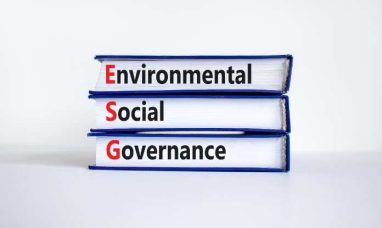DUBLIN, Aug. 31, 2023 /PRNewswire/ — The “Hydrogen Engine: Global Markets” report has been added to ResearchAndMarkets.com’s offering.

The hydrogen engine market was valued at $2.6 billion in 2022 and is projected to reach $10.5 billion by 2028. This market is expected to grow at a CAGR of 26.8% between 2023 and 2028.
In the realm of automotive evolution, the spotlight is firmly fixed on fuel-cell electric vehicles, as this study delves into their current landscape and gazes forward to their market potential over the upcoming five years.
Delving deep into the intricacies, the study unveils a tapestry of market dynamics, from propelling drivers to inhibiting restraints, interwoven with discernible trends and latent opportunities that paint a vivid picture of the global arena. Nestled within the report’s chapters is a dedicated space that sheds light on funding endeavors and mergers and acquisitions within the domain.
As the global stage embraces the urgency of decarbonization, alternative solutions are sought far and wide. Amid this paradigm shift, hydrogen as a fuel emerges as a stalwart contender, offering promise in alleviating carbon emissions conundrums. With heavy-duty trucks looming as significant CO2 emitters within the automotive landscape, the tide of attention turns towards hydrogen-powered solutions, propelled by a concerted effort from automakers.
The canvas expands to encapsulate the present status quo, where fuel-cell electric vehicles have found their footing across developed nations like the United States, Germany, Japan, and beyond. Yet, despite their undeniable promise, these vehicles bear a substantial price tag, prompting individual governments to orchestrate incentives aimed at both vehicle purchasers and OEM entities. A concerted endeavor to curb overall costs and pave the way for wider adoption unfolds against this backdrop.
Tapping into the heart of propulsion technologies, the landscape is dominated by proton membrane exchange technology, a pivotal driving force in fuel cells. Its ability to furnish frequent electricity generation propels the continuous movement of vehicles. However, the collaboration between fuel cell and automotive companies, steadfast in their pursuit of innovation, paves the way for diverse fuel cell iterations, ranging from phosphoric acid fuel cells to others. It’s an avenue laden with potential, albeit one that could potentially influence vehicle pricing dynamics.
Most OEM (Original Equipment Manufacturer) companies, such as Hyundai, Toyota, Volvo & Daimler, and others, are engaged in producing fuel cell vehicles. However, many OEM companies are working with fuel cell manufacturing companies to design and produce a complete vehicle.
Conversely, a few OEM and aftermarket companies can convert vehicles from gasoline/diesel-powered to hydrogenpowered vehicles. Once the hydrogen infrastructure is ready, fleet operators of trucks, taxis, rented vehicles and the like could choose the conversion option.
Currently, fuel cells are integrated with passenger cars, buses and commercial vehicles. Due to the high cost of fuel cell trucks, the commercial vehicle segment dominates the global market. For passenger cars, only two companies, Hyundai and Toyota, offer commercial fuel cell cars across the globe. In comparison, most of the companies are working on heavy-duty trucks.
Report Includes
- An overview of the global markets for hydrogen combustion engine technology
- Estimation of market size and analyses of global market trends, with data from 2022, estimates for 2023, and projections of compound annual growth rates (CAGRs) through 2028
- Assessment of the regulatory environment, demographics, and other factors that directly affect the hydrogen combustion engine technology market
- Discussion on the implications of hydrogen combustion engine technology in the context of the current size and growth of the market
- Evaluation of key industry acquisitions and strategic alliances and market share analysis of the leading suppliers of the industry
- Company profiles of major players within the industry, including Cummins Inc., Honda Motor Co. Ltd., Hyundai Motor Co., Tata Motors Ltd., Hyzon Motors, and Nikola Corp.
Key Topics Covered:
Chapter 1 Introduction
Chapter 2 Summary and Highlights
Chapter 3 Market Overview
- Current Market Overview
- Brief History of Fuel Cell Vehicles
- Technology Roadmap for Hydrogen Fuel Cell Vehicles
- Co2 Emission in the Transportation Industry
- Advantages and Disadvantages of Hydrogen-Powered Vehicles
- Cost Analysis of Fuel Cells for the Transportation Industry
- Incentives to Purchase Fuel Cell Electric Vehicles
- Value Chain Analysis
- Porter’s Five Force Model
- Pestel Analysis
- Impact of Covid-19 on the Market for Hydrogen Engines
- Impact of Russia-Ukraine War on the Global Hydrogen Engine Industry
- Industry Expert Insights
Chapter 4 Market Dynamics
- Introduction
- Market Dynamics
- Market Restraints
- Challenges
- Market Opportunities
- Market Dynamics Impact Analysis
Chapter 5 Market Breakdown by Technology
- Overview
- Proton Membrane Exchange
- Components of a Fuel Cell
- Fuel Cell Stack
- Fuel Processor
- Power Conditioners
- Air Compressors
- Humidifiers
- Components of Pem Fuel Cell
- Membrane Electrode Assembly
- Hardware
- Hydrogen Production Methods
- Types of Fuel Cells
- Phosphoric Acid Fuel Cell and Others
- Direct Methanol Fuel Cells (Dmfc)
- Alkaline Fuel Cells (Afc)
- Molten Carbonate Fuel Cells (Mcfc)
- Solid Oxide Fuel Cells (Sofc)
- Reversible Fuel Cells
Chapter 6 Market Breakdown by Sales Channel
- Overview
- Oems
- Retrofitting/Conversion
Chapter 7 Market Breakdown by Vehicle Type
- Overview
- Global Market Based on Vehicle Type
- Passenger Cars
- Buses
- Commercial Vehicles
- Additional Applications of Hydrogen Fuel Cells in the Transportation Industry
Chapter 8 Market Breakdown by Region
Chapter 9 Emerging Technologies and Developments
- Hydrogen-Powered Technology Assessment
- Trends
Chapter 10 Patent Analysis
- Overview
- Recent Key Granted Patents
Chapter 11 M&A and Funding Outlook
- M&A Analysis
- Startups Funding in Hydrogen Engine
Chapter 12 Competitive Landscape
- Market Share Analysis
- Strategy Analysis
- Swot Analysis in Brief for the Global Market
- Key Developments
Chapter 13 Company Profiles
- Cummins Inc.
- Daimler Truck AG
- General Motors
- Honda Motor Co. Ltd.
- Hyundai Motor Co.
- Hyzon Motors
- Man Energy Solutions Se
- Nikola Corp.
- Tata Motors Ltd.
- Toyota Motor Corporation
For more information about this report visit https://www.researchandmarkets.com/r/scluao
About ResearchAndMarkets.com
ResearchAndMarkets.com is the world’s leading source for international market research reports and market data. We provide you with the latest data on international and regional markets, key industries, the top companies, new products and the latest trends.
Media Contact:
Research and Markets
Laura Wood, Senior Manager
press@researchandmarkets.com
For E.S.T Office Hours Call +1-917-300-0470
For U.S./CAN Toll Free Call +1-800-526-8630
For GMT Office Hours Call +353-1-416-8900
U.S. Fax: 646-607-1907
Fax (outside U.S.): +353-1-481-1716
Logo: https://mma.prnewswire.com/media/539438/Research_and_Markets_Logo.jpg
![]() View original content:https://www.prnewswire.com/news-releases/global-hydrogen-engine-market-analysis-report-2023-market-trends-with-data-from-2022-estimates-for-2023-and-cagr-projections-through-2028-301914656.html
View original content:https://www.prnewswire.com/news-releases/global-hydrogen-engine-market-analysis-report-2023-market-trends-with-data-from-2022-estimates-for-2023-and-cagr-projections-through-2028-301914656.html
SOURCE Research and Markets

Featured image: I Stock © pcess609





